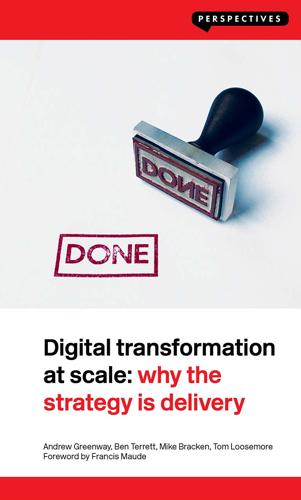
Digital Transformation at Scale: Why the Strategy Is Delivery
by Andrew Greenway,Ben Terrett,Mike Bracken,Tom Loosemore · 18 Jun 2018
Copyright © 2018 Andrew Greenway, Ben Terrett, Mike Bracken and Tom Loosemore Published by London Publishing Partnership www.londonpublishingpartnership.co.uk Published in association with Enlightenment Economics www.enlightenmenteconomics.com All the images in
…
-public services. The UK civic technology movement was a rich source of inspiration, and latterly employees, for GDS. MySociety, an organisation that Tom Loosemore and Mike Bracken helped get started with Tom Steinberg, a former number 10 advisor, acted as an umbrella for civic and community websites. MySociety convened this community around
…
of the HS2 Design Panel and an advisor to the London Design Festival. He was inducted into the Design Week Hall of Fame in 2017. Mike Bracken was appointed Executive Director of Digital for the UK government in 2011 and the Chief Data Officer in 2014. He was responsible for overseeing and

Recoding America: Why Government Is Failing in the Digital Age and How We Can Do Better
by Jennifer Pahlka · 12 Jun 2023 · 288pp · 96,204 words
the original CMS team and the various vendors, healthcare.gov already had thousands of staff. How could a few dozen more make any difference? As Mike Bracken, who ran the Government Digital Service in the UK, said in an interview a few weeks after the launch, “Government constructs its self-image in
…
not the kind of place one imagined hosting British dignitaries. The dignitaries turned out to be Francis Maude, the minister for the Cabinet Office, and Mike Bracken, who was standing up what would soon become the UK’s Government Digital Service. They were both much less intimidating than I had feared. I
…
, August 2019. https://derisking-guide.18f.gov/state-field-guide/. Digital Services Playbook, The. US Digital Service. https://playbook.cio.gov/. Greenway, Andrew, Ben Terrett, Mike Bracken, and Tom Loosemore. Digital Transformation at Scale: Why the Strategy Is Delivery. London: London Publishing Partnership, 2018. Harrell, Cyd. A Civic Technologist’s Practice Guide
…
Peters, Monica Chellam, Max Henderson, Lauren Lombardo, David Recordon, Dave Zvenyach, Waldo Jaquith, Gulsanna Mamediieva, Rick Klau, Yolanda Richardson, Alix Dunne, Dave Cole, Honey Dacanay, Mike Bracken, Dana Chisnell, Bill Hunt, Natalie Kates, Mike Greenfield, Mikey Dickerson, Margaret Levi, Sabrina Merlo, Cristine Soto DeBerry, Victoria Cuff, Genevieve Gaudet, Bret Taylor, Erie Meyer
…
making me a better person. I have a ways to go. To the Brits, without whom my journey to DC would have been very different. Mike Bracken, Ben Terrett, Tom Loosemore, Ade Adewumni, and so many others: thank you for showing the way and pulling me through. Martha Lane Fox and Francis

The Evolution of Everything: How New Ideas Emerge
by Matt Ridley · 395pp · 116,675 words
– have been the ones least affected by automation and digital transformation. That may be changing. In 2011 the British government hired a digital entrepreneur named Mike Bracken, and asked him to reform the way big IT contracts were managed. With the support of a minister, Francis Maude, he came up with a

Digital Wars: Apple, Google, Microsoft and the Battle for the Internet
by Charles Arthur · 3 Mar 2012 · 390pp · 114,538 words
Search: Google versus Microsoft The weather in Brisbane for the 7th World Wide Web conference in May 1998 was dismal: ‘It rained every day,’ recalls Mike Bracken, one of the attendees. Among the many papers on the schedule for the conference, though largely unnoticed, was one by two Stanford undergraduates, entitled ‘The
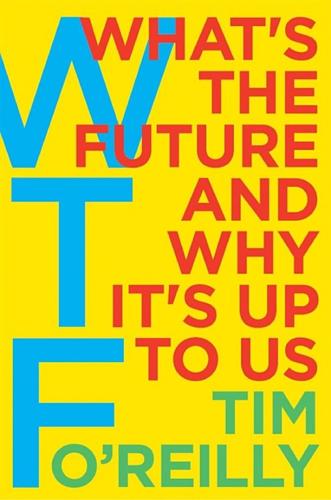
WTF?: What's the Future and Why It's Up to Us
by Tim O'Reilly · 9 Oct 2017 · 561pp · 157,589 words
directly to the UK Cabinet Office, the group responsible for the operations of government. It had been set up in 2011 under the leadership of Mike Bracken, the former head of digital for the Guardian. Mike had soon attracted top talent from Britain’s technology and digital media circles, and the GDS
…
GDS Design Principles: “GDS Design Principles,” UK Government Digital Service, retrieved March 31, 2017, http://www.gov.uk/design-principles. 145 “Start with needs”: After Mike Bracken left the GDS, the first principle was rewritten to leave out the revolutionary idea that existing government processes might be getting in the way of
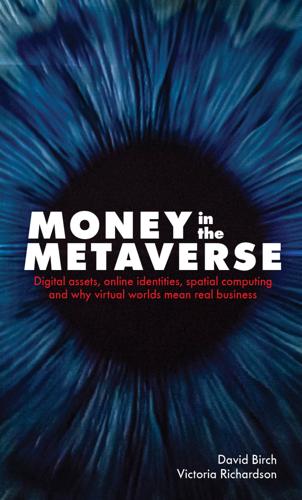
Money in the Metaverse: Digital Assets, Online Identities, Spatial Computing and Why Virtual Worlds Mean Real Business
by David G. W. Birch and Victoria Richardson · 28 Apr 2024 · 249pp · 74,201 words
in Your Workplace and How to Fix It — Helen Holmes Digital Transformation at Scale: Why the Strategy Is Delivery (Second Edition) — Andrew Greenway, Ben Terrett, Mike Bracken and Tom Loosemore The Service Organization: How to Deliver and Lead Successful Services, Sustainably — Kate Tarling Money in the Metaverse: Digital Assets, Online Identities, Spatial

The Currency Cold War: Cash and Cryptography, Hash Rates and Hegemony
by David G. W. Birch · 14 Apr 2020 · 247pp · 60,543 words
and Jack Harding Driverless Cars: On a Road to Nowhere — Christian Wolmar Digital Transformation at Scale: Why the Strategy Is Delivery — Andrew Greenway, Ben Terrett, Mike Bracken and Tom Loosemore Gaming Trade: Win–Win Strategies for the Digital Era —Rebecca Harding and Jack Harding The Currency Cold War: Cash and Cryptography,Hash
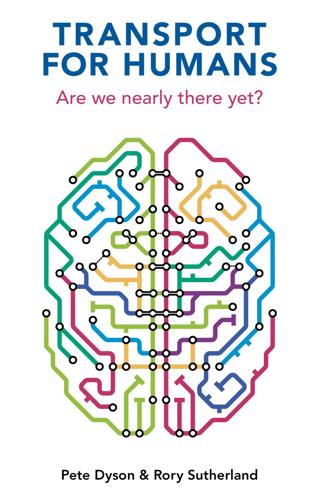
Transport for Humans: Are We Nearly There Yet?
by Pete Dyson and Rory Sutherland · 15 Jan 2021 · 342pp · 72,927 words
and Jack Harding Driverless Cars: On a Road to Nowhere? — Christian Wolmar Digital Transformation at Scale: Why the Strategy Is Delivery — Andrew Greenway, Ben Terrett, Mike Bracken and Tom Loosemore Gaming Trade: Win–Win Strategies for the Digital Era — Rebecca Harding and Jack Harding The Currency Cold War: Cash and Cryptography, Hash
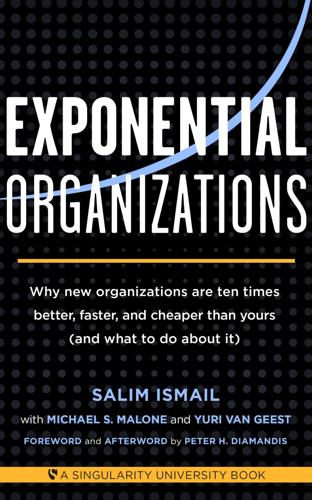
Exponential Organizations: Why New Organizations Are Ten Times Better, Faster, and Cheaper Than Yours (And What to Do About It)
by Salim Ismail and Yuri van Geest · 17 Oct 2014 · 292pp · 85,151 words
improvement in elapsed time, and all with minimal effort. Successful implementation of ExO strategies within a governmental organization can also be found in the UK. Mike Bracken, head of the Government Digital Service, runs his department as if it were an ExO. Constant experimentation with users, fast iterations, citizen-centered design and
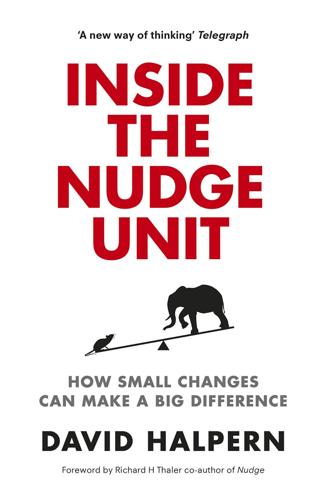
Inside the Nudge Unit: How Small Changes Can Make a Big Difference
by David Halpern · 26 Aug 2015 · 387pp · 120,155 words
who deserve recognition for their support over the years from within the No. 10, Cabinet Office and Treasury community include: Susan Acland-Hood, Paul Bate, Mike Bracken, Tim Chatwin, Will Cavendish, Nick Clegg, Ivan Collister, Melanie Dawes, John Fingleton, Iain Forbes, John Gibson, Miles Gibson, Ameet Gill, Hugh Harris, Rupert Harrison, Richard